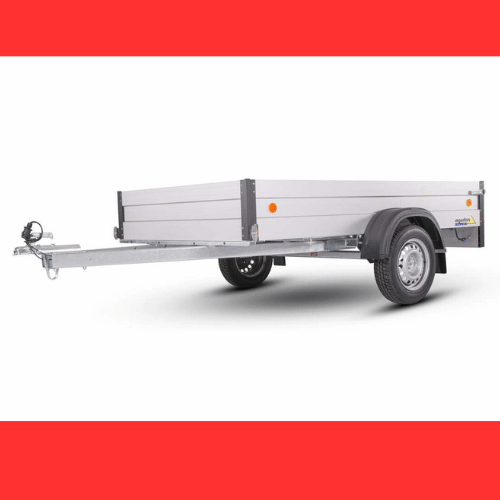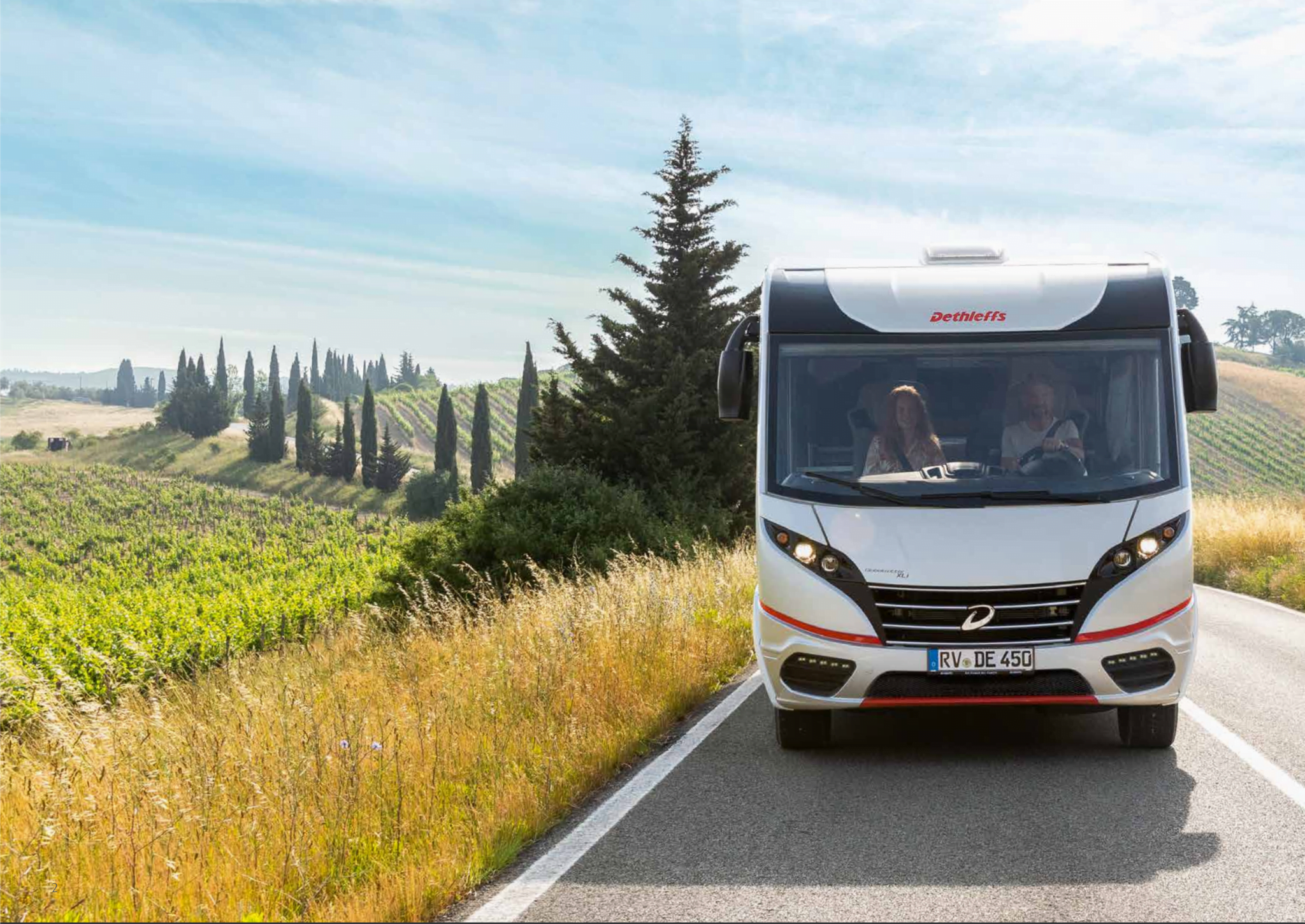Hiring trailers is a practical solution for many people, whether for transporting furniture, building materials or other heavy items. But before you decide to rent a trailer, there are a few important things to consider. In this overview, we will highlight the key aspects you should consider to ensure your trailer rental goes smoothly and stress-free.
- First-aid kit the checklist for camping
- Competent service for motorhomes & caravans at Neuss GmbH on site
- Safety first: the right equipment for your caravan or motorhome
Choosing the right trailer
The variety of trailer types is impressive and offers solutions for a wide range of transportation needs. Each trailer type has been developed to meet specific requirements and enable the safe transportation of different types of cargo.
There are a variety of trailer types that have been developed for different transportation needs. Here are some of the most common trailer types:
| Open trailers | Closed trailers | Refrigerated trailer |
| Motorcycle trailer | Tipping trailer | Vehicle transporter |
Which trailer can I use for what?
- Open trailers: These trailers have no fixed walls or roofs and are ideal for transporting bulky goods such as furniture, building materials, garden waste and more.
- Enclosed trailers: Enclosed trailers have walls and a roof, making them ideal for the safe transportation of delicate or valuable cargo such as electronics, artwork or sensitive equipment.
- Refrigerated trailers: Refrigerated trailers are insulated trailers with refrigeration units and are often used for the transportation of food or other temperature-sensitive goods.
- Motorcycle trailers: These trailers are designed to transport motorcycles safely and have special brackets and devices for stabilization.
- Tipping trailers: These trailers can be tipped to unload materials such as rubble, sand or gravel quickly and easily.
- Vehicle transporters: These trailers are specially designed for transporting vehicles such as cars or ATVs and have ramps and brackets to securely fix the vehicles.
Which trailer can I rent with which driver’s license?
As a holder of a class B driving license, you are permitted to transport trailers up to a maximum total weight of 750 kg. Trailers weighing more than 750 kg are only permitted if the total mass of the car and trailer does not exceed 3.5 tons.
Examples of permissible train combinations with a category B driving license:
- Car – permissible total mass: 2,000 kg / trailer – permissible total mass: 1,500 kg = total weight: 3,500 kg (permissible)
- Car – permissible total mass: 2,000 kg / trailer – permissible total mass: 2,000 kg = total weight: 4,000 kg (not permitted)
- Car – permissible total mass: 1,500 kg / trailer – permissible total mass: 1,800 kg = total weight: 3,300 kg (permissible
The most important safety points and what you need to look out for.
The safety of trailers is a top priority, both for the protection of the occupants and other road users. Before using or transporting a trailer, it is essential to understand and observe the basic safety aspects.
The most important points at a glance
- Legal regulations: Find out about the applicable legal regulations and requirements for trailers in your country or federal state.
- Driving license: Make sure that you have the correct driving license to tow the trailer. A special driver’s license may be required for heavier trailers.
- Towing load: Make sure that your towing vehicle can safely cope with the towing load. Check the maximum permissible trailer load in the vehicle documentation.
- Correct loading: Distribute the load evenly in the trailer to avoid imbalance and swaying. Heavy objects should be placed at the bottom and close to the axles.
- Securing the load: Secure your load with suitable straps or lashing straps to prevent it from slipping or falling during the journey.
- Brakes and lights: Check the brakes and lights on the trailer regularly to ensure that they are working properly.
- Tire pressure: Make sure that the trailer tires have the recommended pressure to ensure optimum stability.
- Driving speed: Observe the speed limits for trailers and adapt your driving speed to the road conditions.
- Safety chain: Always use a safety chain between the towing vehicle and the trailer to prevent it from breaking off in the event of a coupling failure.
- Mirror check: Make sure that the rear-view mirrors of the towing vehicle provide sufficient visibility of the trailer to safely monitor the journey.
- Braking distance: Bear in mind that the braking distance can be longer with a trailer. Keep a sufficient distance from the vehicle in front.
- Correct coupling: Check whether the trailer coupling is correctly attached to the towing vehicle and has been properly locked.
- Emergency equipment: Carry emergency equipment such as a warning triangle and fire extinguisher in the trailer if necessary.
- Driver training: If you have little experience in driving trailers, it is advisable to take advantage of driver training or instruction.
Conclusion
In summary, we would like to emphasize how important it is to always keep safety in mind when handling trailers. Compliance with legal regulations, correct loading, maintenance of brakes and lights and the proper use of trailer couplings are crucial to preventing accidents and ensuring safety on the road. Whether you use a trailer to transport goods, vehicles or leisure equipment, compliance with these safety aspects is essential to ensure both your own safety and that of other road users. Remember that careful preparation and attention during the journey are essential to ensure smooth and safe transportation with trailers.




